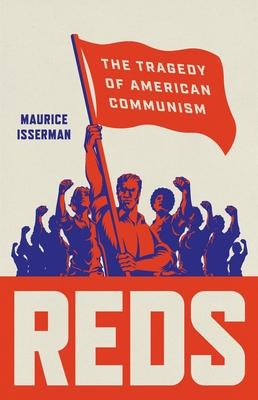
In Reds, historian Maurice Isserman focuses on the deeply contradictory nature of the history of the Communist Party USA (CPUSA), a movement that attracted egalitarian idealists and bred authoritarian zealots. Founded in 1919, the CPUSA fought for a just society in America: members organized powerful industrial unions, protested racism, and moved the nation left. At the same time, Communists maintained unwavering faith in the USSR's claims to be a democratic workers' state and came to be regarded as agents of a hostile foreign power. Following Nikita Khrushchev's revelation of Joseph Stalin's crimes, however, doubt in Soviet leadership erupted within the CPUSA, leading to the organization's decline into political irrelevance. This is the balanced and definitive account of an essential chapter in the history of radical politics in the United States.
In Reds, historian Maurice Isserman focuses on the deeply contradictory nature of the history of the Communist Party USA (CPUSA), a movement that attracted egalitarian idealists and bred authoritarian zealots. Founded in 1919, the CPUSA fought for a just society in America: members organized powerful industrial unions, protested racism, and moved the nation left. At the same time, Communists maintained unwavering faith in the USSR's claims to be a democratic workers' state and came to be regarded as agents of a hostile foreign power. Following Nikita Khrushchev's revelation of Joseph Stalin's crimes, however, doubt in Soviet leadership erupted within the CPUSA, leading to the organization's decline into political irrelevance. This is the balanced and definitive account of an essential chapter in the history of radical politics in the United States.
Hardcover
$35.00